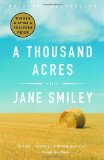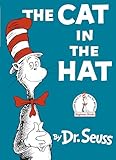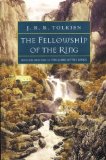This post is second in a series analyzing my own connection with the “top 100 books the UK can’t live without” (pdf). In a previous post, I discussed books 91-100. In this post, I will examine books 81-90.
90. The Faraway Tree Collection by Enid Blyton.
I confess I’ve not heard of this book.
89. The Adventures of Sherlock Holmes by Arthur Conan Doyle
Now this one, I love. My sister gave me the complete collection with four novels for Christmas. I read all of the Sherlock Holmes tales, with the exception of The Hound of the Baskervilles, in one summer. I love them. I love the glimpse into Victorian Britain they provide. I love the fact that after you read them for a time, you can begin to think like Holmes and solve the mysteries. I love the characters. What great stories.
88. The Five People You Meet in Heaven by Mitch Albom.
I must be the last person around not to have read this, but I haven’t. I have heard nothing but good things about it, but these sorts of books just don’t grab me.
87. Charlotte’s Web by E.B. White
This book is the reason I still can’t kill spiders and why I feel bad when I do kill them by accident. I loved The Trumpet of the Swan, too, but I never read Stuart Little. Conventional wisdom in modern children’s writing is that one doesn’t use anthropomorphic animals to tell stories. I guess that’s now passé. If that’s so, then why do so many kids love E.B. White? I haven’t seen the new movie based on this book, but I want to. I loved this book when I was a kid.
86. A Fine Balance by Rohinton Mistry.
I haven’t heard of this one.
85. Madame Bovary by Gustave Flaubert.
I haven’t read this one, but it’s on my list. You know, the one that grows ever longer and makes me despair of ever finishing. But I suppose finishing the list would leave me empty and sad. I have a curriculum guide at school that pairs this novel with Kate Chopin’s The Awakening, which makes me think I’d like Bovary a lot. Also, I really enjoyed Madame Bovary’s Ovaries.
84. The Remains of the Day by Kazuo Ishiguro.
Another one on my list.
83. The Color Purple by Alice Walker.
One of my most beloved novels. I can never fail to cry when Celie is reunited with her children. I love Celie. Who wouldn’t? After being pushed down her entire life, she learns love herself. One of my favorite scenes in the book ( which was cut from the movie) was the scene in which Celie and Mr. ____________ are sitting together on the porch making pants, able at last to make peace with all that came before, and Mr. ___________ asks Celie to remarry him. “I think it pisses God off if you walk by the color purple in a field and don’t notice it.”
82. Cloud Atlas by David Mitchell.
Haven’t heard of this one.
81. A Christmas Carol by Charles Dickens.
Did Dickens invent the way we see Christmas? I personally think he did. What a great story. I love the ghosts. I have to see some version of this every Christmas, or my Christmas doesn’t feel complete. My favorite is the version starring Patrick Stewart.
Stay tuned for 79-80 and more to come.
[tags]World Book Day, literature, reading[/tags]





